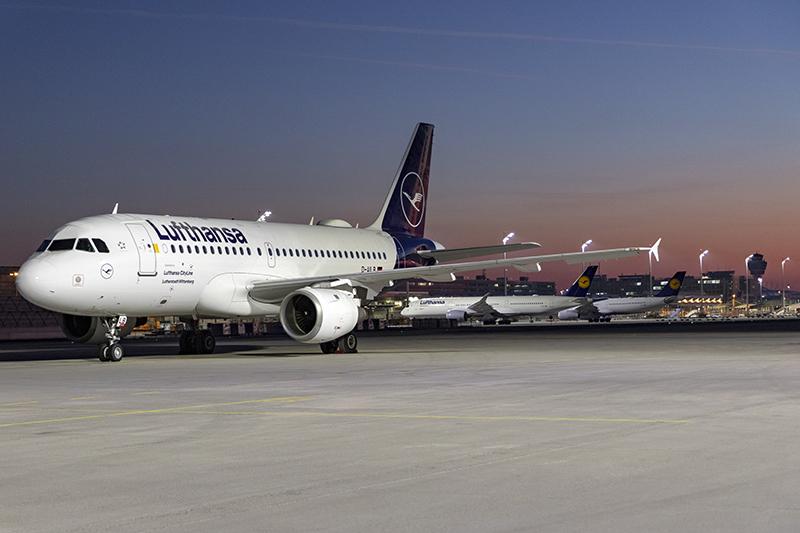
FRANKFURT—Lufthansa plans to base its incoming fleet of 10 Airbus A350-1000s at its second hub in Munich, as the airline seeks to become less dependent on its main base in Frankfurt.
The 10 A350-1000s are part of a larger order for 22 additional widebodies approved by Lufthansa’s board of directors March 2. Of the 22 aircraft, a maximum of seven (Boeing 787-9s) could be based in Frankfurt, though some of them could also be picked up by other group subsidiaries like Austrian or Eurowings. A decision has not yet been made. The -1000s will feature a first-class cabin and replace A340-600s and A380s at the Munich hub.
Based on current firm orders, Lufthansa plans to take delivery of around 200 new aircraft between now and 2030. During the course of 2023, the airline plans to also launch a request for proposals (RFP) for more than 100 additional aircraft that are to replace its A319s, Bombardier CRJs and Embraer E190/E195 fleets operated in its various airline subsidiaries. A decision is to be made in 2024. The group is looking at the A220 and the Embraer E2 family or, given the size of the order, a combination of both. While suited for some markets and units like Lufthansa CityLine, which feeds the large hubs, the A220 may be too large for operators such as Air Dolomiti, which currently flies an all-Embraer fleet.
The massive investments in the new fleet come as Lufthansa, similar to its European peers, has managed a financial turnaround in 2022. Coming back from deep losses of 2020 and 2021, the group posted an operating profit of €1.5 billion ($1.6 billion) in 2022 on revenues of €32 billion. While that has been the seventh best year in the company’s history in terms of absolute profit, the passenger airline business and Lufthansa Airlines/Eurowings in particular continued to make losses. The overall profit was instead driven by Lufthansa Cargo (€1.5 billion operating profit) and Lufthansa Technik (€500 million).
CEO Carsten Spohr, whose contract has been extended by five years to 2028, stressed that Lufthansa Airlines and Eurowings will both be profitable in 2023 and the group’s overall margin will be significantly higher than in 2022. Lufthansa is benefiting from exceptionally high demand and capacity constraints that it expects to continue for the foreseeable future. In the first quarter of 2023, yields will be 21% above 2019 levels, according to CFO Remco Steenbergen. In the second quarter they are expected to be even higher. And forward bookings for the all-important summer season look very promising, too.
Lufthansa targets an 8% operating margin in 2024 and expects passenger volumes to be back at 2019 levels at the end of next year.
Negotiations about a minority stake in ITA Airways are progressing “very well,” according to Spohr. And Lufthansa remains interested in further acquisitions. “If somewhere a sale is planned, we will be interested and sit at the table,” he said. In particular, he referred to the upcoming sale of TAP Air Portugal: “I have been to Lisbon already.”
The investments are part of a broader plan to move from an aviation group including affiliated businesses such as catering to a more airline-focused concern that is less dependent on its original home market Germany, where only 30% of Lufthansa’s revenues originate today.
